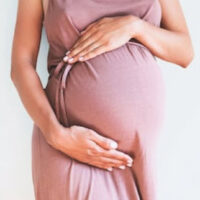Birth Injuries Caused by Failure to Diagnose Maternal Conditions: Legal Options for Families in Pennsylvania

When a child suffers a birth injury, the impact is devastating not only for the baby but for the entire family. Many of these tragic injuries are preventable and occur when medical providers fail to recognize and address maternal health conditions during pregnancy.
In Pennsylvania, families who experience such negligence have legal options to pursue justice and compensation. Understanding how a failure to diagnose maternal conditions can lead to birth injuries, and knowing what steps can be taken under the law, is essential for protecting your child’s future.
How Maternal Conditions Contribute to Birth Injuries
Pregnancy requires vigilant medical monitoring. Physicians, nurses, and other healthcare providers have a duty to evaluate maternal health, order necessary diagnostic tests, and respond promptly to risk factors. When maternal conditions go undiagnosed or untreated, the baby can face significant complications before, during, and after delivery.
Some of the most common maternal conditions that, if missed, may lead to birth injuries include:
Gestational diabetes. Without proper diagnosis and treatment, gestational diabetes can result in macrosomia (an abnormally large baby), which increases the likelihood of shoulder dystocia, oxygen deprivation, or nerve damage during delivery.
Preeclampsia and eclampsia. These hypertensive disorders are life-threatening for both mother and child. Failure to diagnose preeclampsia can lead to placental abruption, restricted oxygen supply, and brain injuries such as hypoxic-ischemic encephalopathy (HIE).
Infections. Maternal infections like Group B strep, cytomegalovirus, or urinary tract infections can cause permanent injury to the baby if not detected and treated in time.
Placental and umbilical cord issues. Conditions such as placenta previa or placental insufficiency require careful monitoring. Missed diagnoses can result in restricted fetal growth or oxygen deprivation during labor.
In each of these cases, timely recognition and treatment are critical to avoiding harm. When providers fail in their duty to diagnose, families may face lifelong medical challenges for their child.
Legal Responsibilities of Pennsylvania Medical Providers
Healthcare providers in Pennsylvania owe their patients a duty of care that includes diagnosing maternal conditions in accordance with accepted medical standards. When they breach this duty and the failure leads to birth injuries, it can constitute medical malpractice.
In addition, Pennsylvania’s statute of limitations for medical malpractice claims is generally two years from the date of injury. However, in birth injury cases, special rules may apply. For example, a child who suffers injury has until age 20 to bring a claim under 42 Pa. Cons. Stat. § 5533(b)(1), which tolls the statute of limitations during a minor’s childhood. This legal protection gives families time to understand the full extent of the injury before pursuing legal action.
Damages Available to Families
Birth injuries caused by undiagnosed maternal conditions often result in extensive and lifelong consequences. Compensation in a malpractice case may cover:
- Immediate and ongoing medical treatment
- Specialized therapies (physical, occupational, or speech therapy)
- Home modifications and assistive technology
- Future lost earning capacity of the child
- Pain, suffering, and loss of life’s pleasures
In some cases, parents may also recover damages for emotional distress and loss of consortium. These damages are intended not only to provide financial relief but also to hold negligent medical providers accountable.
Proving a Failure to Diagnose Case
Medical malpractice claims in Pennsylvania require more than showing that an injury occurred. Families must prove that the provider deviated from the standard of care. This often involves expert testimony from medical professionals who can explain what should have been done under the circumstances.
For example, if a mother presented with high blood pressure and swelling, but her provider failed to order tests to check for preeclampsia, an expert may testify that the standard of care required such testing. If the baby later suffered oxygen deprivation and brain damage, the link between the failure to diagnose and the injury must be established through medical evidence.
Pennsylvania also requires a Certificate of Merit in medical malpractice cases under Pa. R.C.P. No. 1042.3, confirming that an appropriate medical expert has reviewed the claim and found it has a reasonable basis. This procedural step underscores the importance of working with an experienced attorney.
Why Legal Help Is Essential
Families navigating the aftermath of a birth injury often feel overwhelmed by medical bills, emotional trauma, and uncertainty about the future. Taking on a complex legal claim against a hospital or healthcare provider can feel impossible without guidance. An experienced Philadelphia Birth Injury Lawyer can help by gathering medical records, consulting experts, and ensuring all legal deadlines are met.
By pursuing a claim, families may secure the resources necessary to support their child’s lifelong needs while also driving accountability in the healthcare system. Holding negligent providers responsible helps prevent similar tragedies from happening to other families.
Contact The Villari Firm
If your child suffered a birth injury due to a healthcare provider’s failure to diagnose a maternal condition, you do not have to face the future alone. The Villari Firm has decades of experience fighting for Pennsylvania families impacted by medical malpractice. We understand the profound emotional and financial toll these injuries cause, and we are committed to pursuing the justice and compensation you deserve.
Contact us today to discuss your legal options in a free consultation.
Sources:
Pennsylvania Consolidated Statutes, 42 Pa. Cons. Stat. § 5533(b)(1)
Pennsylvania Rules of Civil Procedure, Rule 1042.3
Centers for Disease Control and Prevention – Maternal and Infant Health
